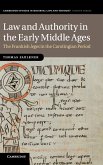Lavishly illustrated, the book contains seventy five historical maps and colour plates which visualize the historical background of Hungary and introduces its early history to a broader readership. The early history of Hungarians is embedded into the history of Eurasia and special attention is given to the relationship of the Hungarians with the Khazars and the Bulghar-Turks. The first part deals with methods and sources which can be used for elucidating the ancient history of the Hungarians, relying on research into linguistics, archaeology, anthropology and natural history. The second part traces how the Hungarians came into the Carpathian Basin and answers such questions as: who are the Magyars, from where did they come and how did they conquer the land? It reconstructs and examines their early political and social structure, the economy, and religion, and compares the Hungarian medieval process with the ethnogenetic processes of the Germanic, Slavic and Turkic people.
Hinweis: Dieser Artikel kann nur an eine deutsche Lieferadresse ausgeliefert werden.
Hinweis: Dieser Artikel kann nur an eine deutsche Lieferadresse ausgeliefert werden.








